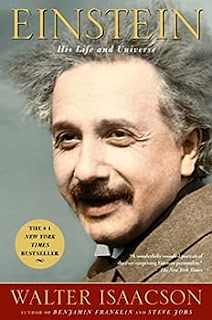Dear Senator Merkley,
In a time of great danger for America, we look to you for leadership. We ask you to convene a Senate caucus that can coordinate the public to defend democracy and the rule of law.
Earlier this month, Elon Musk’s hackers indiscriminately dismissed federal employees and blocked funds from the Treasury, usurping Congress’ Constitutional authority. Last week, Donald Trump installed loyalists who had offered to do violence on his personal behalf at the FBI and the military, while firing military lawyers who could question unlawful orders. Both Musk and Trump have publicly considered defying the courts. Their power and lawlessness may lead them to instigate violence for political ends. They may intimidate civil servants, federal judges, elected officials, and ordinary Americans into doing their bidding. It is unclear how far they will go. We are not organized enough to fight back.
Democrats in Congress seem to be relying on the courts to block illegal actions, and on the voters to defeat the perpetrators. We are optimistic that courts and voters will indeed see things this way. But that may not be enough if Musk and Trump amass power quickly enough to outrace slow judicial procedures and then disrupt subsequent elections. Trump avoided punishment for tampering with Georgia’s elections in part by attaining Presidential power before the courts could act. Musk may think his vast wealth can keep him above American law.
America has suffered a catastrophic breakdown in the rule of law before. After the Compromise of 1877 withdrew federal troops from the former Confederacy, KKK-like groups began intimidating black voters. Though Mississippi had elected two black Senators between 1865 and 1877, the era of lynchings brutally ended black political equality. Southern states fell into many decades of racial segregation.
If Musk and Trump defy the courts, interfere with elections, or threaten public officials, a last line of defense will be civil society itself. People standing together behind proper legal authority and supporting those unlawfully threatened can stop even a coup. Isolated individuals can be coerced with violent threats. Coordinated groups can respond with unity and power to those who threaten their members. But while many are eager to fight back against Musk and Trump’s destructive schemes, there is no central node around which a network of citizens can coordinate. Senators would have the stature to attract allies throughout civil society, and to coordinate them in strategic harmony with official political power.
Senator Merkley, we ask you to convene a caucus that can coordinate civil society to defend democracy and the rule of law. We understand that your immediate power over events is limited, with Democrats in the minority and Musk moving very fast. Even so, having the public coordinated around your leadership may help you solve yet unknown problems that will arise as events unfold. A little attention from you and colleagues will give the caucus strategic guidance and the legitimacy needed for broad support. We and others whose voices carry farther will be eager to follow. Musk and Trump can likely be deterred or defeated by a well-coordinated society ready to stand up against unlawful schemes.
We look to you for leadership because of your extraordinary past achievements in political coordination. You led Democrats to win the Oregon state House in 2006, running a strong challenger against the Republican Speaker so that she had to fundraise for herself instead of her members. Then with a slim 31-29 majority, you passed all 12 items of the Democratic agenda by convincing your party to vote as a bloc. Over 16 years in the US Senate, you have led on countless issues from immigration to the filibuster. You have always been an expert at bringing people together, in your soft-spoken and thoughtful way.
America needs your leadership now. Please coordinate us in defense of democracy and the rule of law.
Your fellow Americans,
Oregonians: Andrew Eshleman, Avram Hiller, Bobbie Jansen, Christine Johnson, Jay Odenbaugh, Joanna Freisner, Jonathan Kaplan, Lisa Farlin, Nate Smith, Paula Connaghan, Rhiannon Long-Rabern, Ruth Kish, Sandra Clay, Sarah Tinker Perrault, Sharyn Clough, Suzette Boydston
Other Americans: Neil Sinhababu, Alan Goldman, Allison Kuklok, Andrea Scarantino, Andrew Lavin, Angela Potochnik, Anna-Sara Malmgren, Aryn Conrad, Ásta Kristjana Sveinsdóttir, Barbara Henley, Barrett Emerick, Bernard W. Kobes, Brendan Dillon, Brian Bix, Bruce Brower, Bruce Janz, Bryan W. Van Norden, Candice Shelby, Cathy Radcliffe, Catlyn Keenan, Chris Boom, Chris Tillman, Christopher Dickens, Cynthia Freeland, Daniel Pallies, Daniel Rubio, Deb Rosevear, Douglas Flaker, Elizabeth Prince, Frankie Egan, Gillian Russell, Greg Frost-Arnold, Gualtiero Piccinini, JA Stansell, Janet L. Factor, Janice Tuttle, Jennifer Kanyuk, Jennifer Kling, Joshua Spencer, Kimberly Owens, Kris Rhodes, Laura Elwood, Lee Courtney, Lily Simmons, Mary Helen Lavigne, Michael W. Pelczar, Nate Smith, Per Milam, Roberta Millstein, Sally Jackman, Sarah Robins, Stephen Darwall, Stephen Finlay, Steve Steward, Summer Westerbur, Taylor Fiscus





